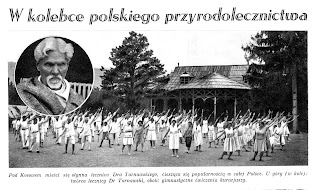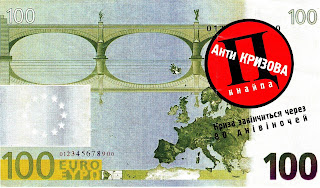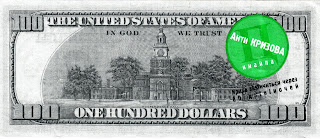I was sharing a late night tea recently in Rakhiv, a Carpathian town on the Romanian border, with a Peace Corps volunteer, a Fulbrighter based in L’viv, and Vasyl, a Rakhivite eager to try out his English language skills on us three native speakers. He had spent some studying English in America after he won the greencard lottery. We got onto the topic of differences between educational methodologies in Ukraine and the US, which segued onto the topic of patronymics, the formal way that teachers in Ukraine are addressed, i.e. “Hello, Maria Rostyslavivna! (“Maria, daughter of Rostyslav.”) The US contingent complained about the confusion that this breeds in schools where identical names are common, as in Rakhiv school no. 2, where three different Maria Ivanivna’s teach. In America, Vasyl told us, since this patronymic system wasn’t used, he preferred to address his teacher as “Lady Teacher.” To him a sign of respect, to us, somehow funny. “Hello, lady teacher.” He seemed confused at our laughter, so, as we dug deeper into an explanation, we came to the conclusion that it seemed misguidedly flirtatious to American ears. Redundant and idiomatically clumsy, “Lady Teacher” sounds like a vague come on, especially the way he was saying it. Vasyl blinked and smiled mischievously, “Well, what’s wrong with that?” Innocent enough.
I’ve been thinking a lot, in my waning fieldwork days, about the challenges and benefits of being an American “Lady Ethnographer” in Ukraine. My two field sites – Crimea and the Western Ukrainian Carpathians - presented their specific sets of different challenges. But more often than not, the mix of off-color wisecracks, blatant verging on aggressive passes, remarks about the un-lady-like nature of the work I do and the work I should be doing (seemingly alone in the world, 28 years old with no babies to show), the way I drive my beat up car (fast), and so on, made me feel uncomfortable at times, occasionally bemused, pissed off at others. It is too simple to say that I objected to being cast as the weaker sex, because women’s roles in these traditional societies are complex and too demanding to be weak – witness any wrinkled babushka hauling firewood like a lumberjack to understand. And it’s too easy to say that I simply resisted the popular belief that Americans are incompetent at basic life skills, because everything we own comes ready pre-packaged, everything we eat is microwavable, and everything that breaks is disposable and replaceable. But some combination of being cast as a delicate flower and as a helpless Americanka usually made me all the more determined to show that I was tough too, to push to the mountaintop faster, to get plenty of dirt under my fingernails, to cook dinner for the whole family. This led to a few absurdist spectacles - as when I spent three long early spring days doggedly tilling and planting a potato patch in Verkhovyna, pointedly alone, albeit publicly observed and teased by the neighbors and their friends (“Hey, look at the Amerikanka dig!”) - and a few frightening situations, as when I found myself mouthing off against men who held some bigoted or ignorant belief in harsh enough terms that, if I had been a man myself, the final punctuation on the hostile exchange would almost certainly have been my broken nose.
But I am a lady, after all, and you do not hit a lady. (At least, not in public – domestic violence is an entirely separate, ugly fact of gender relations in large segments of Ukrainian traditional societies.)
In the year and a half that I have spent in Ukraine, there have been numerous confrontations in which I have butted heads with worldviews predicated on hate, suspicion, or misinformation. Sometimes these confrontations are productive, carried through by both parties with diplomacy, to where I think I can feel the earth move slightly under my opponent’s feet. But sometimes they are not: they escalate to a fever pitch, to where the stakes seem high enough and the hurt runs deep enough that I can imagine how words might lead to physical violence. The two scariest episodes of such were both in Crimea, both surrounding my response to propaganda against the Crimean Tatars. In both cases, I was relieved to be a lady.
About a month ago, I got into it with a man in Cossack uniform. The setting for our verbal brawl was spectacular: at the foot of the Uspensky Monastery, which is carved into the gravity-defying cliffs above Bakhchisaray. A colleague from Turkey had come to Crimea to attend the World Congress of Crimean Tatars, and following the high-falutin’ “peace and harmony and a brighter future” rhetoric of the opening ceremony at the Khan’s Palace, we decided to blow off the banquet lunch and go, instead, on a hike up past the Russian Orthodox Monastery to the ancient cave city of Chufut-Kale. I stayed behind as he went up to the sanctuary in the caves because I was curious to speak to the “Cossacks” who I had noticed guarding the monastery in recent months. On that day, there were two men wearing military-style uniforms and berets, with badges and insignia linking them to the “KHY” – one of the xenophonic self-appointed “security forces” that are cropping up in various parts of Ukraine. I started up a conversation with the beefier, clearly more senior, of the two. Our exchange went something like this:
MS: [in Ukrainian] Hello, I’ve noticed you here the last few times I’ve visited, and I’m wondering who you are, who sent you…
Cossack: [in Russian] We were invited by the monks to defend their monastery.
MS: Did you invite yourselves or did they reach out to you?
C: We offered our services, and then they invited us.
MS: What is your purpose as an organization?
C: To defend our Motherland, Mother Rus,’ and our glorious religion.
MS: Your badge says you are Ukrainian Cossacks.
C: That’s right, we are. We defend the Ukrainian territory from foreigners, in the name of Mother Rus’.
MS: I’m confused. Do you speak Ukrainian?
C: [visibly annoyed, attempting to speak Ukrainian, but really speaking Russian with a Ukrainian accent.] Yes, but it’s not the language used here. You don’t understand anything, little girl.
MS: Who are you defending the monastery from?
C: [red-faced] You wouldn’t understand, little girl.
MS: I think I might understand, I know a little about this. Can you tell me from whom you’re defending the monastery?
C: [pause, sigh] From the Crimean Tatars. They want to steal it from us.
MS: Really? Who in particular wants to steal the monastery?
C: You don’t understand anything, little girl. You have to have lived here your whole life to understand. Many of their organizations are plotting…
MS: Can you name one such organization?
C: [long pause] The Meijlis.
MS: Ha! The Meijlis wants to steal the monastery! That’s simply not true, sir. You are misinformed.
C: [He is red-faced, a crowd of listeners has gathered around us.] Girlie, you don’t understand anything, They want to steal and take everything, those traitors, as they’ve done for centuries. They want to transform our Crimea into an extremist Islamic caliphate.
MS: [I lose it] Sir, you are operating under a set of xenophobic delusions. Your organization is breeding mistrust and hatred for no reason. This is Slavic supremacy. This is racism, plain and simple.
C: Devotchka! You don’t understand anything!
[He is steaming mad, looks like he wants to hit something, and storms away, starts telling sympathetic ears about the unjust abuse I have heaped upon him. They glare at me, the head-scarved Orthodox women selling honey and the Cossacks. My Turkish friend comes down the stair and I quickly steal him away from the scene, explain what happened down the road and fume for another twenty minutes.]
In retrospect, as in every situation where I’ve lost my cool and angrily confronted a scary (male) bigot, I regret it, because I know that my outburst led to nothing positive, just a rush of adrenaline and a pounding heart. But no change of heart in my opponent - probably just increased irrational hostility towards the perceived enemy and, for those that have known of my citizenship, toward the US, which is largely believed to be churning out its own anti-Russian, pro-NATO and pro-EU propaganda. (Which, to be fair, it was doing openly under the Bush administration. We’re still waiting to see what Obama’s strategy toward Ukraine is.)
Ukraine today is caught between two warring accounts of history, as it is caught between two different attitudes towards otherness, be it gendered, ethnic or raced otherness. In Russia today, Medvedev has taken some alarming steps to institutionalize the revisionism of Soviet history initiated by Putin. In the new revised version, Stalin is rehabilitated as a hero, Hitler’s attempt to take Gdansk is seen as “reasonable” and the fear and terror of the purge eras is underplayed. The flat-out refusal to acknowledge the genocidal Ukrainian Holodomor that took over ten million lives in 1932-33 goes along with the implicit denial of Ukraine as a viable nation. Russian blockbuster epic films like this year’s “Taras Bulba” simplify Gogol’s telling of history to preach a transparently throwback pan-Slavic message: there is no difference between Ukrainian Cossacks and Russian freedom-fighters, we are all Slavic brothers, fighting against the same (Polish/Muslim/NATO/US) enemy. The effect of seeing so many heroicized fallen warriors adhering to a Soviet ideal of masculinity, gurgling blood while they shout “Glory to Mother Rus’! Glory to Russian Orthodoxy!” seems to have had a mild brainwashing effect on many of the film critics whose reviews I read after seeing the bombastic film for myself, since they all seemed to repeat a variation on a theme: we are all Slavic brothers, Ukrainians should realize that. Commercials on Ukrainian television showed enthusiastic viewers proclaiming similar (19th century) visions of pan-Slavic unity after seeing the film.
Isn’t this as eerily transparent as it is familiar? Propaganda is an insidious but also necessarily blunt tool to serve its function of clubbing masses into alternate worldviews. But shouldn’t this also make it easier to dismantle, to deflate the delusion? How do you battle against blatant distortion of the historical record without risking violence, nevermind the obvious conflict of an outsider coming in preaching her own ideological worldview? When do we step back and throw up our hands and feel guilt at our privilege and the entitlements of our citizenship and our attempts to ideologically dominate in a foreign place, and when do we fight for the truth to come to light, for the historical fact to be, at the very least, acknowledged?

















